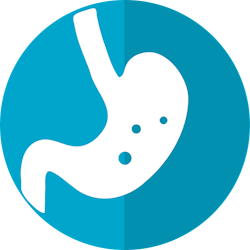Model predicts treatment response in gastric cancer
A study by researchers at Mayo Clinic Cancer Center in Florida is validating the use of genomic sequencing to predict the likelihood that patients with gastric cancer will derive benefit from chemotherapy or from immunotherapy, according to a news release.
The study was published in Nature Communications.
"Gastric cancer is among the leading causes of cancer-related death, worldwide," says Tae Hyun Hwang, PhD, Chair of Mayo’s Florida Department of Health Cancer chair at Mayo Clinic Cancer Center in Florida. "We sought to use genomic sequencing to build a model that predicts the likelihood that a patient will derive benefit from chemotherapy or from immunotherapy," says Hwang.
To build this model, Hwang and his team developed and implemented a machine learning algorithm that integrated genetic data from more than 5,000 patients. Then the team developed a molecular signature consisting of 32 genes that could be used to guide patient care decisions.
Hwang says the 32-gene molecular signature still needs prospective validation, but he believes it eventually will be able to identify patients who are likely to respond to chemotherapy and immunotherapy. "Similarly, we would also be able to identify patients who are unlikely to benefit from chemotherapy and immunotherapy, thereby sparing them the potential side effects of these therapies," says Dr. Hwang.
Hwang and his team also are working to develop new assays based on the expression level of a single — or several — genes to make biomarkers more accessible and easily deployed in the clinical setting. "We are working on artificial intelligence algorithms that utilize diagnostic histopathology images to identify patients most likely to derive benefit from immunotherapy," says Hwang. "We are also studying the molecular mechanisms of immunotherapy resistance made available by the machine learning and artificial intelligence approaches that we have developed in our lab."

